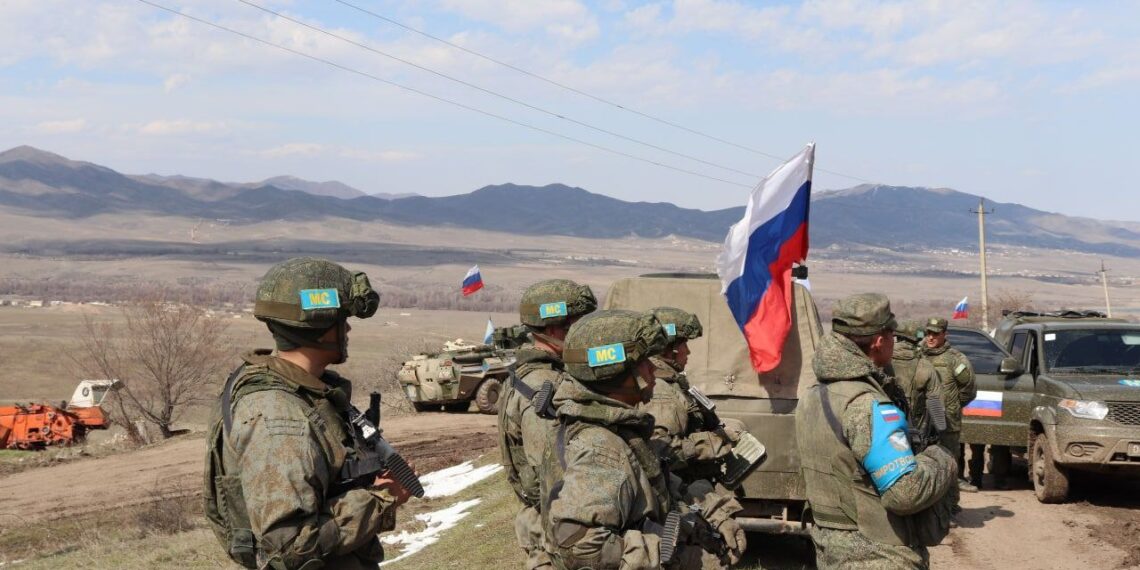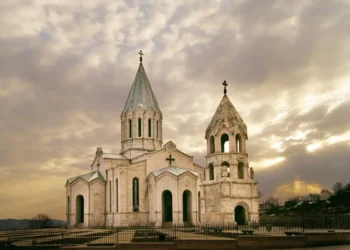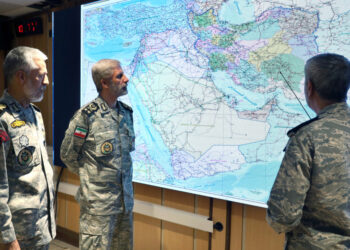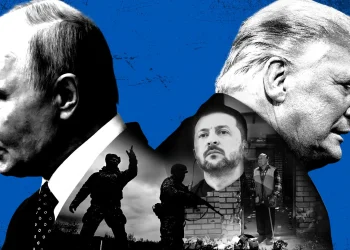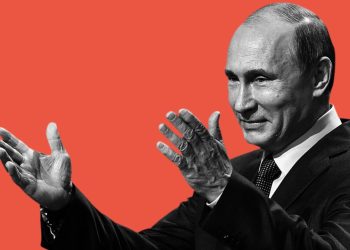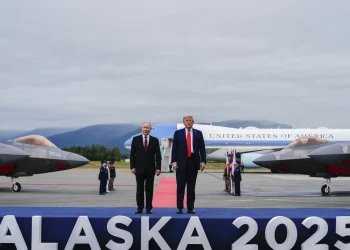MOSCOW (Realist English). The Russian special military operation (SMO) in the Ukraine has caused a wide reaction on the world stage. A significant part of the states, which are under the influence of the United States, joined the tough anti-Russian sanctions. And these are not only Western countries (NATO and the EU), but also other satellites of the United States (for example, Japan, South Korea, Australia, etc.).
In this regard, Turkey differs significantly from its allies and demonstrates its characteristic state historical tradition of national pragmatism – flexible diplomacy and high prudence. As a member of NATO, Turkey continues to support official Kiev, sovereignty and territorial integrity of the Ukraine within its borders as of until March 2014. Ankara considers Crimea and Donbass an integral part of the Ukrainian state. In the conditions the Russian-Ukrainian military-political crisis that began on February 24, 2022, Turkey continues to provide Ukraine with sufficiently effective military-technical, humanitarian and diplomatic assistance.
War always generates an objective need for the conflicting parties to receive new high-quality weapons and military equipment. And Turkey, both prior to the events of February 24 and after that date, continues to supply the Ukrainian side with its Bayraktar-TV2 attack UAVs, which especially distinguished themselves in the theater of operations, destroying part of Russian military columns and military equipment. As time has shown, the export of Turkish UAVs to Kiev turned out to be not only “business and nothing else” (as Turkish Foreign Minister Mevlüt Çavuşoğlu repeatedly pointed out to his Russian colleagues), but also politics (and very unfriendly towards Russia at that).
Moreover, given the high need of the Armed Forces of the Ukraine in professional personnel of UAV operators for the qualitative use of the same Bayraktars against the Armed Forces of the Russian Federation, a group of Turkish instructors has been sent to theUkraine to provide appropriate assistance and even participate in hostilities. Obviously, Russian signals counterintelligence records the Turkish speech when correcting and targeting the attack UAVs.
According to the official statements of Defense Minister Hulusi Akar, Turkey is also providing humanitarian military assistance to the Ukraine. What is meant by this — the Turkish side does not decipher (the list may include items from medicines and dry rations to intelligence and military equipment). Military transport planes with the appropriate cargo for the needs of the Armed Forces of the Ukraine are being regularly sent from Turkey to the Polish airfield “Rzeszow” bordering with the Western Ukraine.
President Recep Erdoğan has repeatedly publicly criticized the West and NATO for allegedly insufficient (read: military and political) assistance to the Ukraine in the confrontation with Russia. And this criticism partly concerned the discussion on the establishment of a no-fly zone over the Ukraine to strengthen the air defense forces against the Russian combat aircraft.
In his turn, on March 23 of this year, Turkey’s Permanent Representative to the UN, Feridun Sinirlioğlu, accused Russia of war crimes and gross violation of international law, recognized Russia’s SMO as foreign aggression against a sovereign state, demanded an immediate ceasefire and called on Moscow to leave the territory of the Ukraine without any conditions.
At the same time, Turkey, even before the start of the Russian military operation in the Ukraine, made a lot of efforts through diplomatic channels to establish the Russian-Ukrainian negotiation process and organize meetings at the level of foreign ministers and presidents of the two countries with Ankara’s mediation. Despite the similar activity of some other countries and, above all, Israel (apparently, taking into account the Jewish ethno-political factor in the top leadership of the modern Ukraine and Tel Aviv’s “historical memories” of the Jewish autonomy project in Crimea), Turkey has achieved much greater success in the role of mediator in the Ukrainian direction.
In particular, it was Turkey that managed to establish a direct dialogue and meeting between Russian Foreign Minister Sergey Lavrov and Ukrainian Foreign Minister Dmitry Kuleba at the international diplomatic forum organized by Ankara in Antalya in March of this year. Mevlüt Çavuşoğlu can rightfully attribute the very fact of such negotiations to his successes and strengthen Turkey’s mediation status in the Russian-Ukrainian crisis. In addition, thanks to Ankara’s proximity to both Moscow and Kiev, both sides recognize (at least the Ukraine) Turkey’s role as a guarantor of the security of the future Ukraine following the results of subsequent negotiations and a peace agreement. In this regard, it is impossible to exclude the fact that Turkey might offer to install its peacekeepers into the conflict zone in the Ukraine upon completion of the Russian military operation.
Meanwhile, Turkey, despite its membership in NATO and allied relations with the West, has not officially joined the US’ and EU’s anti-Russian sanctions. President Erdoğan acknowledged the importance of maintaining friendly relations with Russia, the significant role of the Russian Federation in the global economy (and, not least, in the Turkish economy), as well as the need to develop these ties to end hostilities and establish peace in the Ukraine.
Ankara did not immediately succumb to pressure from the United States and NATO to close the passage of Russian warships through the Black Sea Straits in accordance with the provisions of the 1936 Montreux Convention. Nevertheless, after letting Russian warships into the waters of the Black Sea to their permanent bases, Turkey later declared that, in accordance with the said Convention, it was forced to close the passage through the Straits for the Russians. It turns out that the Turks gave the Russians time, increased the share of their country in international affairs, and finally agreed with the West.
In other words, towards Russia and the Ukraine so far Turkey is trying to pursue a competent and balanced policy, which is motivated by political and economic expediency, Ankara’s expectation of receiving new dividends and preferences from Russia in other geographical regions (including the Middle East, South Caucasus and Central Asia).
In recent days, the topic of S-400 air defense systems acquired by Turkey from Russia has been actively discussed in the press, allegedly for transfer (or sale) by Ankara to Kiev at Washington’s insistence in order to strengthen the AFU air defense system against the Russian Aerospace Forces.
President Joseph Biden, having received the consent of the US Congress to increase military assistance to the Ukraine in the amount of $ 1 billion, is actively consulting with the leaders of NATO member countries in order to consolidate joint efforts in the anti-Russian direction. The fact that the United States officially refused President Vladimir Zelensky to establish a no-fly zone over the Ukraine in order to avoid a direct military clash between NATO and the Russian Federation and the Third World War does not at all mean the exclusion of another form of such military assistance to the Ukraine from NATO.
In this regard, military adviser to the President of the Ukraine Alexey Arestovich has repeatedly publicly noted that if NATO, for well-known reasons, cannot “close the sky” over the Ukraine, then the West is quite capable of transferring to Kiev the necessary types of weapons (air defense systems, combat aircraft) and the Armed Forces of the Ukraine will cope with this task themselves. It is worth adding to this the fact that, according to the call of the United States and Great Britain, the so called “soldiers of fortune” – foreign legionnaires, among whom there may be highly qualified professional military personnel of NATO armies in various specialties (snipers, scouts, pilots, gunners, anti-aircraft gunners, UAV operators) have been sent to Ukraine to help the AFU. Meanwhile, the secondment of Turkish operators of the Bayraktar UAV’s to the Ukraine boils down to the same thing.
As it is known from the media, the United States on March 6 this year offered Poland, Hungary, Slovakia, Bulgaria, Romania and the Czech Republic, that is, former members of the Warsaw Pact Organization, to transfer Soviet MiG-29 fighters and Su-25 attack aircraft to the Ukraine. These countries, however, either fear an imminent military threat from Russia, or speculate on the topic of the Ukraine and try to upgrade their fleet of combat aircraft utilizing the Russian-Ukrainian military crisis, demanding American F-16 fighters from the United States instead of the Soviet MiGs and the Su’s. The theme of fighters has not been elaborated. For example, Poland has stated that it is not a party to the conflict between the Ukraine and Russia, and the transfer of MiG-29 fighters requires the decision of all NATO member-states. Finally, Warsaw offered to transfer its MiG’s to the US’ Ramstein Airbase in Germany. But apparently the Germans don’t want problems with the Russians either.
As a result, on March 21, this year, information surfaced in the press that the United States offered Turkey to transfer to Ukraine the S-400 air defense systems previously acquired from Russia. As you know, this military-technical cooperation between Turkey and Russia has caused serious criticism from the United States both at the stage of the transaction and after its signing. In response to this self-will of a NATO member on the southeastern flank of the alliance, Washington imposed certain sanctions against Turkey (in particular, it refused to supply the Turks with American Patriot systems and modern 5th-generation F-35 fighters). Today, Biden offers Erdoğan to transfer the Russian S-400 air defense system to the Ukraine to be used against Russia, and in return, the United States promises to lift sanctions against Turkey and include it in the F-35 program.
In one of my interviews, in particular, on December 23, 2020, I had to critically assess the fact of the sale of the Russian S-400 air defense system to Turkey, because no one guaranteed the possibility of its subsequent use against Russia herself in the same Ukraine and Crimea. I don’t think my words then turned out to be prophetic today. Turkey is unlikely to agree with the United States so easily and will stall for time, using the Russian air defense system as a diplomatic tool to put pressure on Russia and get new benefits from Putin’s “friend”. I proceeded from the fact that Turkey is not an ordinary member of NATO, respectively, weapons are not tomatoes, but a means of politics. Selling weapons to the enemy may turn out to be more expensive in the near future.
Officially, Turkey has not yet responded to the US’ proposal for the S-400 air defense system. However, one of the representatives of the Turkish Foreign Ministry in an interview with the Russian publication Izvestia spoke in negative terms (they say, the Turks will not agree with the Americans having already put the S-400 on combat duty). Naturally, the representative of the Foreign Ministry is not at all the president or even the head of the Turkish Foreign Ministry. At the same time, in my opinion, Ankara is unlikely to agree with Washington yet and will not spoil relations with Moscow. Rather, the Turks will not officially respond to the Americans’ request at all.
Meanwhile, Turkey is closely monitoring the course of the Russian-Ukrainian confrontation and, depending on its outcome (or the turn of events), will make a final decision. In the short term, Turkey will maintain the existing partnership with Russia and will try to get another understanding from Putin:
a) geopolitical concessions on the issue of Syria (Idlib and the Kurds), Karabakh (expulsion of the Armenian population), Armenia (establishing control over the Zangezur corridor) and Turan (strategic access to historical Turkestan).
b) economic preferences: expanding the range of Turkish goods to Russian markets due to the Western sanctions; lowering prices for Russian gas supplies to the Turkish market; completion of the Akkuyu NPP in Mersin; laying of the Trans-Caspian gas pipeline along the bottom of the Caspian Sea with Turkey’s access to Turkestan and Kazakhstan; increase of the flow of Russian tourists to Turkish resorts.
It is noteworthy that in the situation with Karabakh, Turkey, already under the circumstance of the Russian-Ukrainian crisis, is taking active measures by the hands of Azerbaijan to oust the Armenian population from the borders of its multi-thousand-year homeland, using the example of the village of Parukh in the Askeran district of the self-proclaimed NKR. Thus, on March 8 of this year, sabotage was carried out on the territory controlled by the Azerbaijani side near Shusha and the only gas pipeline from Armenia to Karabakh was blown up, which caused a humanitarian crisis for the peaceful population of the NKR. For more than ten days, Azerbaijan, despite intensive negotiations with the participation of Russian peacekeepers, did not allow to conduct restoration work to be carried out on the exploded section of the gas pipeline under the conditions of heavy precipitation and frost in mountainous areas. It was only on March 19 of this year that Baku rebuilt the gas pipeline on the condition that the Armenian side would withdraw its troops from the village of Parukh to enter the positions of the Russian peacekeepers. The Armenians left the village, but the Russians did not enter. As a result, on March 21 this year Azerbaijan blocked the gas valve and brought its troops into the named village, which is of strategic importance for this area, because here is the height from which the entire Askeran region of the NKR is controlled.
What does this threatening situation explain to the Armenians? Either Baku is arbitrarily engaged in a gross violation of the armistice regime and the trilateral agreements of November 9, 2020 between Azerbaijan, Armenia and Russia, strict compliance with which is included in all documents and speeches of the Russian authorities. Or this sabotage indicates the weakness of the Russian peacekeepers and the involvement of the Russian Federation in the Ukrainian affairs. Or this Azerbaijan’s consistent “gas sabotage” is coordinated with Turkey and Russia, because it is unlikely that Ilham Aliyev with his “paper fist” is capable of “miracles of heroism” without the sanction of Ankara and Moscow. In all cases, there is a breakdown of the ceasefire regime established by Russia, which does not add to Moscow’s authority in any way and may in the foreseeable future make the North face the fact of withdrawal from the Karabakh conflict zone, and Armenia itself. It sounds trite, but it is relevant — why are there peacekeepers in Karabakh if the Armenians themselves will not remain there?
In this case, the Armenians’ hopes for Russia will rapidly melt away like an early morning fog in the sky over Karabakh. Turkey will be forcing Armenia to sign a peace treaty with Azerbaijan without Russian mediation, which will eventually lead to the end of Russia’s presence in the South Caucasus region. Naturally, Ankara and Baku will not want the resumption of a new destructive war in Karabakh, but Azerbaijan can give up 4-7 thousand square kilometers in order to preserve the remaining 70 thousand square kilometers, as well as stable connection with Turkey and Europe via Armenia.
In the medium to long term, Turkey will maintain a strong alliance with the West and will be an adversary of Russia, because they are well aware that, regardless of the outcome of its Armed Forces in the Ukraine, the Russian Federation, compared to the situation on February 24, 2022, will get a much worse peace under the conditions of tough sanctions (and in fact economic war) and foreign policy isolation.
It should be recognized that the unprecedented scale and content of the West’s anti-Russian sanctions are not just restrictions, but an outright economic war against our country. And if one can assume that the end of SMO is not far off (in any case, its limit is not eternal), then today it is difficult to determine when the West will abandon its sanctions and whether the economic war will end. It is clear that it is unlikely that the United States and its partners are able to intimidate Russia and the Russian people, because during its thousand-year history, Holy Russia has seen a lot and experienced a lot.
The ancient Greek philosopher Aristotle used to say: “The goal of war is peace.” The English historian Sir Basil Henry Liddell Hart added in this regard that the purpose of the war is to achieve a better state of the world after the war.
Any war, of course, will eventually end in peace. The side that starts hostilities, as a rule, firstly, is dissatisfied with the peace system on the eve of the war, and secondly, hopes to achieve a more acceptable peace based on the results of its victory. However, if Russia can achieve all of its designated goals (that is, demilitarization, denazification and federalization of Ukraine), or some of them (which is tantamount to failure), then in any case, the West itself is unlikely to lift sanctions (economic war) so soon. Staying in the state of economic war with insufficient technological equipment status of domestic industry and agriculture, of course, will not bring Russia the expected “better world” in comparison with the situation before February 24, 2022.
Turkey takes into account these features of the current state of Russia. This is the reality of Turkish politics, its prudent and pragmatic diplomacy, which is capable of maneuvering between different geopolitical centers of power, making friends for the time being, staying two steps away from the historical abyss. This was the case following the results of the two World and Cold wars in the twentieth century, and it continues under the conditions of the modern Russian-Ukrainian geopolitical crisis in the first quarter of the XXI century.
Turkey always tries to get political and economic dividends in conflict situations, which once again testifies to the competence of the Turkish leadership. Turkey uses its partnership with Russia to: minimize threats from its northern neighbor today$ establish geographical communication with China tomorrow and implement the Great Turan Project the day after tomorrow.
Alexander Svarants — Doctor of Political Sciences, Professor, Special to Realist English


